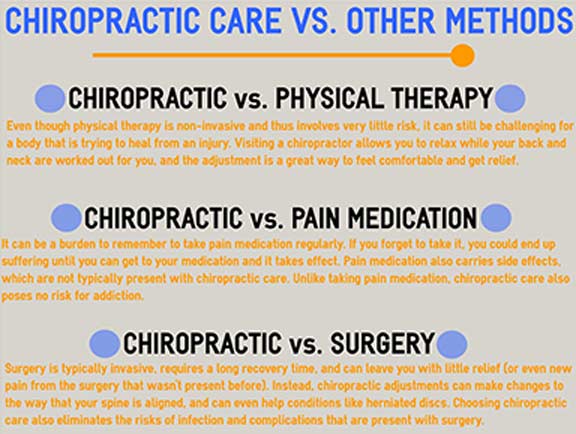If you're experiencing neck and back pain, your body might be trying to tell you something greater than just pain. The method your back really feels can supply valuable hints about your overall wellness. Comprehending the particular type of pain you're feeling and any kind of going along with symptoms is vital to unraveling the enigma behind your pain. Let's check out the common problems and symptoms connected with various types of neck and back pain to shed light on what your body may be signaling.
Sorts Of Neck And Back Pain
When it comes to neck and back pain, there are different types that you might experience. One typical kind is muscle pain, usually brought on by overuse, pressure, or injury to the muscles and ligaments supporting the spine. This kind of pain can vary from moderate discomfort to severe and debilitating discomfort.
One more kind is nerve discomfort, which can arise from problems like herniated discs or sciatica. Nerve discomfort frequently presents as a sharp, shooting experience that emits down the leg.
Joint discomfort in the back can come from issues like arthritis or sacroiliac joint disorder. This type of discomfort is usually felt in the lower back and can be aggravated by specific movements.
Furthermore, back pain can be related to structural troubles such as spine constriction or vertebral fractures. Understanding the type of pain in the back you're experiencing is important in establishing the appropriate treatment and administration strategies.
Common Symptoms to Look For
Relocating past the numerous types of pain in the back, it is very important to acknowledge the typical signs and symptoms that can indicate underlying issues.
Consistent pain in the back that gets worse with motion or in the evening might suggest a more severe issue. Tingling or tingling in the legs or feet, particularly when accompanied by weakness, might point to a nerve-related concern. If you experience sudden weight-loss together with neck and back pain, it could be a sign of a more systemic problem.
Focus on any type of adjustments in bladder or bowel feature, as this could be connected to spine compression. Fever, cools, or night sweats along with pain in the back might indicate an infection. Keep an eye out for discomfort that radiates down one or both legs, potentially a measure of sciatic nerve pain.
Health Conditions Linked to Back Pain
If you experience pain in the back, it's critical to comprehend the potential wellness problems connected to this pain. Neck and back pain can be a sign of various underlying problems, consisting of muscular tissue pressures, herniated discs, osteo arthritis, back stenosis, and also conditions like kidney stones or infections.
Muscle strains are common and commonly arise from raising hefty items or abrupt motions.
Herniated discs take place when the soft tissue between vertebrae protrudes, triggering nerve irritability.
Osteoarthritis, a degenerative joint condition, can cause neck and back pain as cartilage material wears down.
Spinal stenosis, the constricting of the back canal, can tax nerves.
Kidney rocks may trigger intense neck and back pain if they move into the urinary system system.
Infections like spine osteomyelitis can also materialize as neck and back pain. Understanding these prospective health and wellness conditions can aid you seek suitable healthcare and administration for your back pain.
a fantastic read , following time your back hurts, take notice of the sort of pain and accompanying signs and symptoms. Maybe https://claytonrjzpf.blogunok.com/30906241/start-your-search-of-a-much-healthier-pain-free-life-today from your body regarding underlying wellness conditions like muscle mass strain, nerve problems, joint issues, and even structural concerns. By identifying these indications, you can take aggressive actions to attend to the source of your neck and back pain and enhance your general health and wellness.
